Beit Uri: House in the Hills
Photos by Jeanette Koll
In a cool, wood-paneled hall in Israel's Jezreel Valley a grand piano stands on a parquet floor. Elina Durian, a petite, effervescent Russian Conservatoire-trained concert pianist, hits a high note. Outside, in the spring sunshine, manicured gardens nod and smile; organic vegetables sway to the music. In an on-site paddock in the grounds, horses neigh in harmony. And in the hall, residents of pastoral Beit Uri, aged between six and sixty-two, hold hands with blonde, blue-eyed German volunteers (some of them from the "Ot Kepara" - Atonement Organization), as they dance "Mayim Mayim, Mayim, Mayim" together.
It's a surrealistic, Hatikva-moment.
Beit Uri is a home for life for the severely developmentally challenged, who, despite their difficulties, are blessed with a chance to live as normally as possible. A few of the dancers are in wheelchairs; one has an imaginary friend whom he updates endlessly on an imaginary telephone he hides in his pocket. There are one hundred and eight residents at Beit Uri; one hundred and eight poignant stories. M. is a young Bedouin with a very low IQ as well as extreme ADHD. His distraught parents, with several other children at home, resorted to chaining him up with their sheep to stop him from running away. By the time Beit Uri found him, M. was a sheep; bleating and eating like his hut companions. Today he's a clean, well-fed young adult, who plays his part, albeit limited, in the functioning of the home.
"For every person there is a place" was the motto of Devorah Schick, the legendary founder of this curative village. Growing up in Prague in a well-to-do Jewish family, and marrying an established Judge, did not prepare Schick for giving birth to a mentally handicapped son just as the Nazis were threatening Czechoslovakia. Yet in 1938 she insisted on leaving Europe for Palestine, with her only child. None of her family agreed to join her; all of them perished in the Holocaust. In her twenties Schick found herself all alone, in a foreign land, with no money and a very needy son.
Undaunted she opened a restaurant in Tel Aviv, which she operated until her son, Uri, passed away at the age of sixteen. Schick pledged to establish a home in Uri's memory for children like him; a warm, secure space which simply did not exist in Israel at the time. On her own, and with no experience in anything of the sort, she travelled to Europe to study therapeutic pedagogy in various institutes, including with Rudolf Steiner, founder of Anthroposophy, in Switzerland. Back home she searched for a place of peace and tranquility, where each resident could live in dignity.
Beit Uri looks like a quintessential kibbutz of yesteryear; nestled into the hills just outside Afula, the low, well-kept buildings each house fifteen residents in clean, comfortable bedrooms built around a communal kitchen/dining room area. Each house has a piano and an aquarium; much of the wooden furniture is made on the premises, as are the weavings and art on the walls, and the ceramic signs on the bathrooms and front doors.
Mealtimes find residents gathered around a communal table, eating food prepared under the supervision of caregivers helped by other residents. Despite hyper-activeness, epilepsy, and severe behavioral complexities, the atmosphere is calm and convivial. Staff and volunteers (who number around one per four residents) eat together with their charges, take them to medical appointments in the new state-of-the-art clinic, accompany the children to a special-needs school on the premises, and take the adults to their work.
Work at Beit Uri includes carpentry workshops, candle-making, weaving, ceramics, tending an organic vegetable garden, creating paper-mache pieces of art, cooking and baking. Professional artists guide their workers, who turn out wonderful products. It's indeed awe-inspiring to see Yossi, for example, blind from birth and severely challenged, turning a wheel to roll clay and smiling with satisfaction as he succeeds. Gal reports on his "secret" phone that work for the day is almost done; an aging resident with early onset dementia in addition to a myriad of other problems chips away happily at a plank of wood, fashioning a child's toy car that any kid would love to own.
The work is more than merely a way to spend the morning; it has intrinsic value. Beautiful channukiot, paintings, ornaments, wooden cutting boards and more are on sale to the public, and make meaningful, lovely gifts.
Disabilities know no borders; Arab and Jewish residents mix freely in the home, together with their Arab, Jewish and Christian carers. Natalie, a geophysicist from Azerbaijan, and Awataf from the village of Shibli work alongside Hai Long, an eighteen year-old German volunteer with parents from Taiwan. Together they patiently encourage their 'resourceful' charges to mold clay into gorgeous shapes, weave carpets and make rag dolls and elegant Shabbat candles fit to grace the most sophisticated tables.
"Every resident, no matter how developmentally challenged, finds his or her place here," says Jeanette Koll, head of Fundraising for Beit Uri, whose son Noam has lived at the home for almost thirty years. Noam was born with Cri du Chat syndrome – a rare genetic disorder resulting from a cracked 5th Chromosome. Affected children have very small heads and under-developed brains; their only verbal communication sounds like the cry of a cat. "Devorah took Noam in when we were quite desperate," recalls Koll, "and put him into the room next to hers until he acclimatized. She was a saint, and she saved our sanity."
Beit Uri remains true to Devorah Schick's mantra of caring for each resident with dignity. One adult with frequent epileptic seizures, for example, constantly wears a helmet to save him from injuries, and has a full-time carer by his side. A new Assisted Living Facility, currently under construction, will soon provide magnificent accommodation and medical care for thirty-two residents with severe medical conditions. The next dream is to build a therapeutic pool, if funds can be found. Beit Uri is supported by the government and private donations; families pay on a means-tested scale until the resident turns eighteen. Adults live there free of charge.
Anyone can visit Beit Uri: workshops for educators are held on the premises, and private tours can be arranged. A café boasting delicious delicacies baked on-site is open for meals and private functions. One of the workers is Raphael Wachsman, brother of the late Nachshon Wachsman, who at nineteen was kidnapped and killed by Hamas terrorists.
Spend a few minutes watching a blind, deaf man intertwining cane branches to make a perfect basket, and severely autistic adults happily humming melodies as they dance; it can change your life. It changed mine.
For more information please visit www.bet-uri.org.il



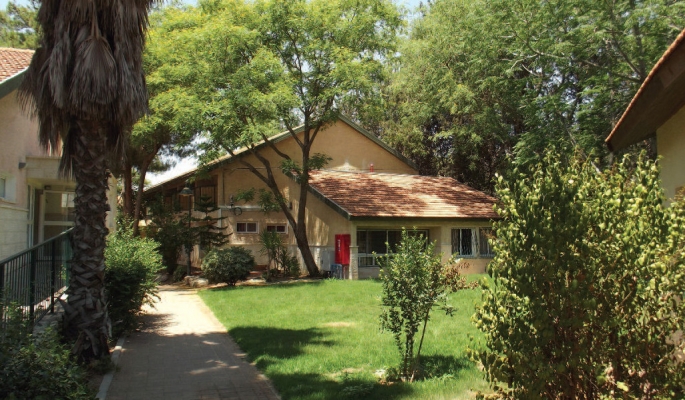
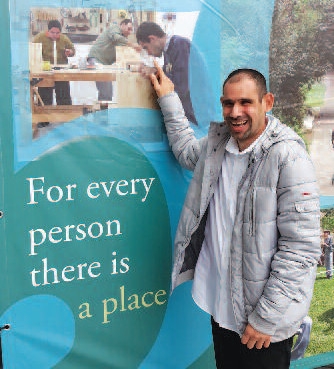
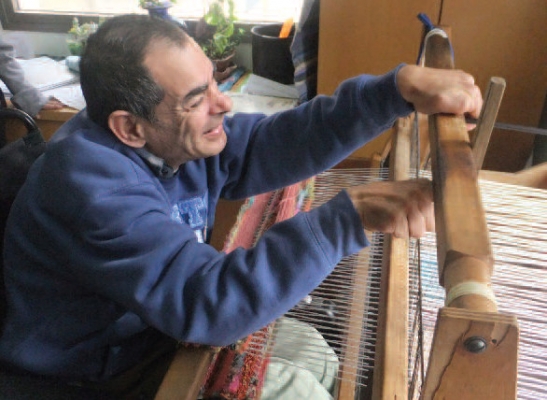
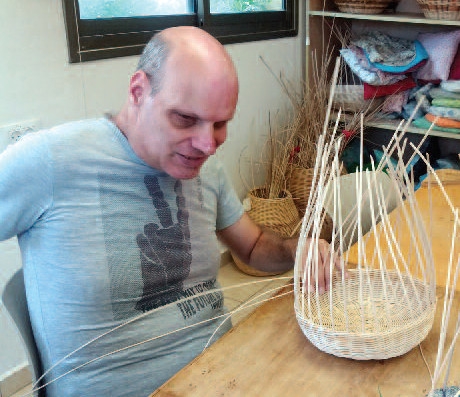
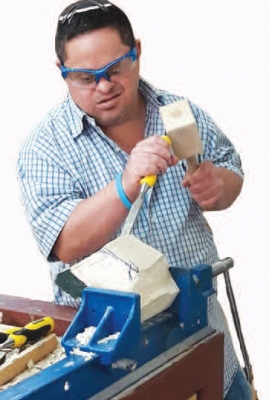
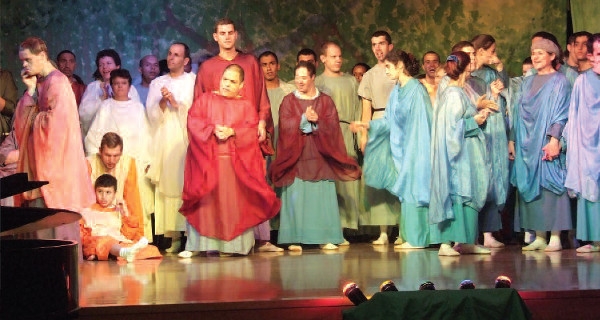




Comments